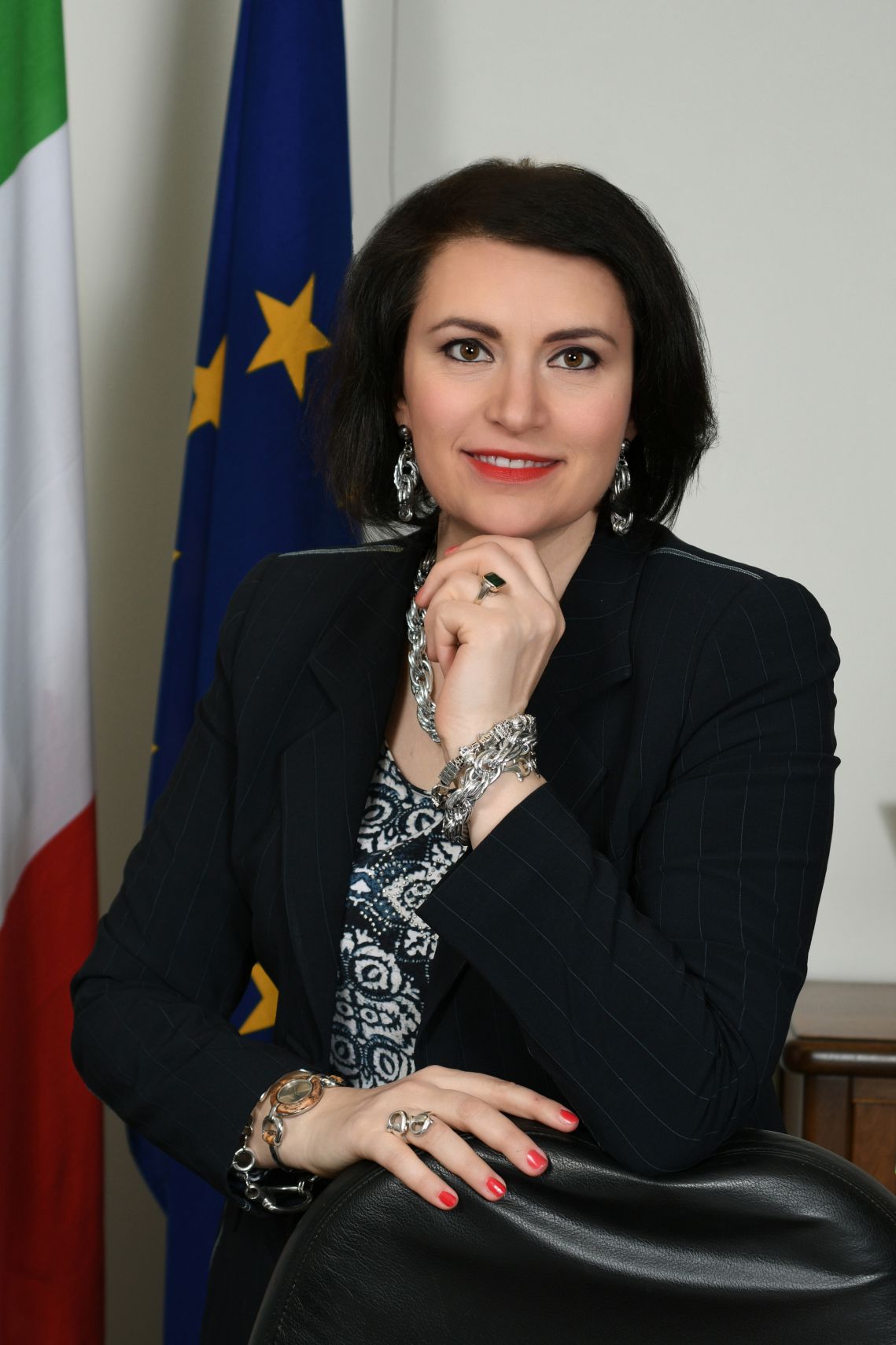30 December 2022
Interview with... Silvia Costantini
Italy’s Permanent Representative at the ICAO and the Consul General for Italy in Montreal
[Cleared n°10 - anno XIX - nov/dec 2022]

Ms Costantini, what are the duties and tasks of the Diplomatic Service that you lead?
Our job is to safeguard, promote and protect Italian national interests at an international level, within the field of civil aviation. I’ve had the privilege for over three and a half years of being an integral part of ICAO’s governing body (the Council), which has meant negotiating, mediating, but also reporting, while continuing to foster friendly relations between Italy and this United Nations Agency guiding the air transport sector.
In addition to the national and regional dimensions in Europe, the EU and ECAC, there is a keen awareness in Montreal that the decisions we take have an effect on all 193 member countries. In this capacity we are obviously moved by universal values such as mutual understanding, cooperation between peoples and the search for effectively sustainable solutions.
What were the main themes that emerged during the recent 41st edition of the Triennial ICAO Assembly?
The 41st ICAO Assembly was entitled “Reconnecting the world”, geared towards a resilient form of air transport, capable of reacting promptly and sustainably to a potential new crisis and with a strong drive for innovation within the environmental, social and economic fields.
The most highly debated topics were those relating to environmental protection and decarbonisation in the air transport sector. The Assembly approved a number of decisions which, without exaggerating, may be defined as historic. I am referring to the Long-Term Aspiration Goal (LTAG), which set 2050 as the net zero target for air transport, as well as the short and medium-term objectives, defined by the global mechanism for the reduction of CO2 emissions, the Carbon Offsetting and Reduction Scheme for International Aviation (CORSIA). To achieve these ambitious targets, both countries and industries will need to adopt innovative measures in terms of technology, operations and energy.
ENAV has always taken a leading stand on safety and sustainability within the field of aviation. What news came out of the event on the regulatory and technological front?
Safety and air navigation capacity and efficiency are still the main strategic areas where ICAO resources are used; in fact approximately 50% of the budget is allocated to them.
The updates to the Global Aviation Safety Plan (GASP) and the Global Air Navigation Plan (GANP) include a strong digital component, which will require the definition of an important data security framework that reflects, for example, the policies adopted in Europe.
In the airspace field, there has been recognition of the need to develop specific standards for the “new entries” in the future aviation world, such as remotely piloted systems or for suborbital operations.
As already mentioned earlier, the ambitious “net zero” target set for 2050 and the confirmation of effective offsetting requirements starting from 2024 establish a solid framework for the development of air transport. This will encourage strong investments in the field of infrastructures and aircraft technological renewal, while continuing with further improvements in the efficiency of ground and in-flight operating procedures. I am aware that ENAV is already at the forefront in this area, for example with the adoption of Continuous Descent Operations (CDO), direct routes and, more generally, through route optimisation.
Italy has confirmed its role as a leader in civil aviation, achieving third place in terms of the number of votes in the elections for the ICAO Council. What does reaching this prestigious achievement actually mean?
Italy is not new to first-class results in a wide range of fields and this specific result is the natural conclusion of the synergistic and successful partnership between the Italian diplomatic service, which knows how to ensure maximum support for the country, and the Italian national air transport system where our industry plays a prominent role in Europe and the world under the dynamic and effective leadership of ENAC. It is no coincidence that the current Presidents of the ICAO Council and ECAC are Italian, both coming from ENAC. I’m extremely satisfied with the result achieved in the election to the Council this year. There was a slight reduction - in absolute terms - in the number of votes obtained compared to 2019, but the current conditions are much more “turbulent”, if we consider the delicate international and European context. We might say “Fly high”, to use a metaphor from our sector. This is also the interpretation I give to my very recent election - on 24 October 2022 - as Vice President of the ICAO Council, which provides further evidence of the way our work is generally appreciated. This is why I can proudly assert that, in this delicate historical juncture, Italy is second to none in the field of international civil aviation.


